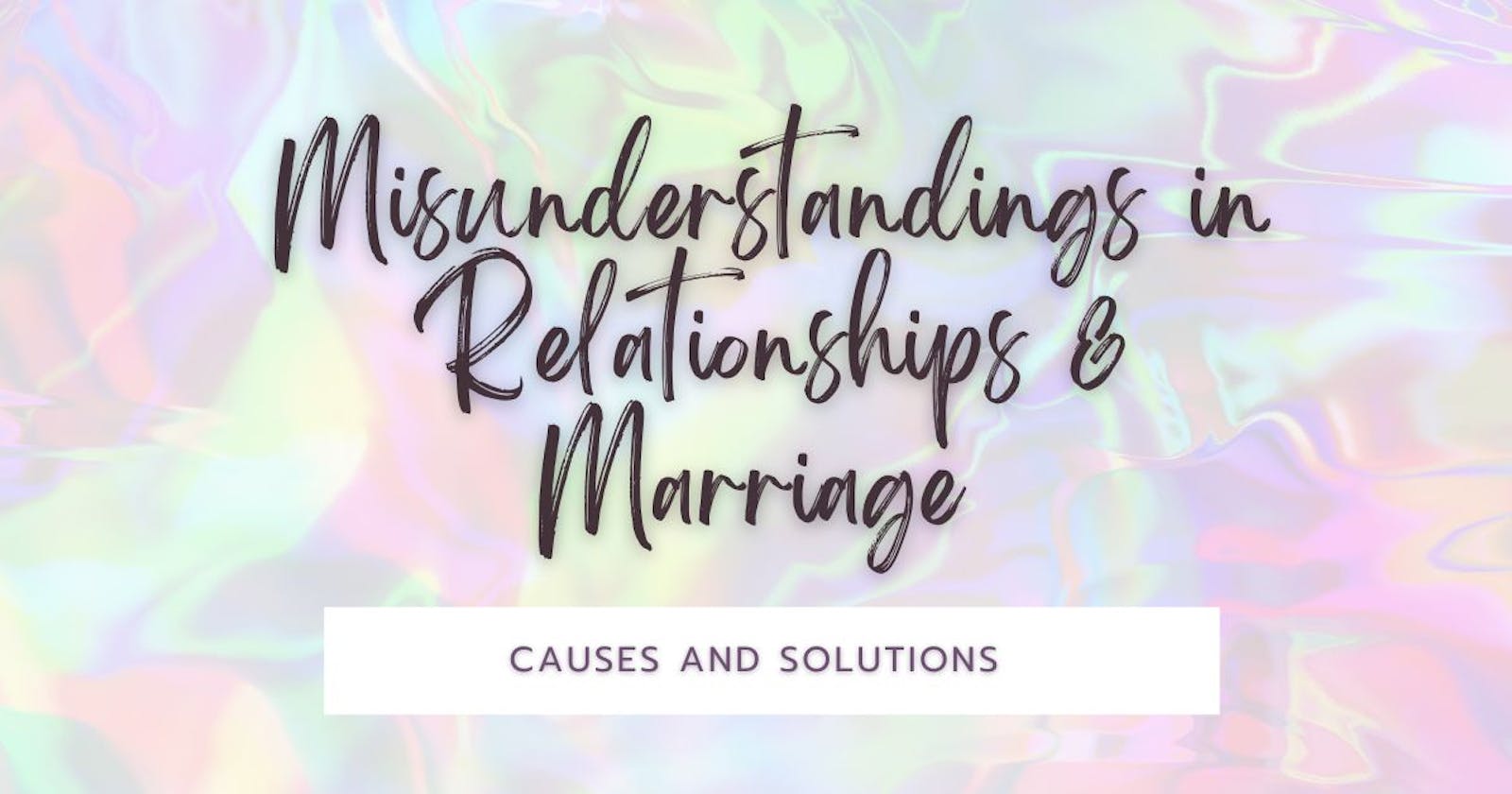Misunderstandings in Relationships & Marriage : Causes and Solutions
Miscommunication occurs when one, both, or neither party in a relationship doesn't fully understand something.
Table of contents
No headings in the article.
Building relationships takes time and patience. Understanding the other person's feelings and thoughts is a sign of a healthy relationship. It can only be done through a constructive discourse. But occasionally, despite your best efforts, you are unable to grasp what your partner is trying to say, which results in misunderstandings. Unresolved misconceptions could lead to more serious arguments between a pair. There will inevitably come a time in a relationship when misunderstandings develop between you and your spouse, but there are always straightforward solutions to fix them.
Miscommunication occurs when one, both, or neither party in a relationship doesn't fully understand something. Therefore, mistakes and misunderstandings occur when there is a lack of moral clarity since a false impression is created. The fundamental cause of misunderstandings, which can be caused by a number of things, is usually a lack of clarity in comprehension of the situation.
One of the first things to do when there is a misunderstanding is to make an effort to comprehend what is going on. If you want to comprehend what is happening more clearly, you might need to go back a little bit. When you comprehend the problem, it will be simple to take the appropriate action. Because they lack the patience to identify the true source of the misunderstanding, many couples have unresolvable disagreements.
Due to the possibility that both partners may hold divergent opinions on certain issues, miscommunications in relationships are rather common. What is important, though, is how you resolve the misunderstanding. Misunderstandings can be an opportunity to get to know your partner better and show them the proper affection if handled correctly. Deliberate strategies to appreciate your relationship more can be developed with the knowledge of why misconceptions occur.
One of the reasons for misconceptions in a relationship is that both partners may not listen intently while their partner is speaking to them. In a conversation between two persons, one of the participants may typically just hear what is being said. As a result, they can forget certain significant talking topics. If this happened often, there would be a misunderstanding in the relationship.
Some couples should not be permitted to minimize the feelings of their partner. In a relationship, you must be sensitive to your partner's feelings and do your best to provide a solution. You will have a better grasp of how to handle the situation if you can take the time to understand why your partner is acting the way that they are. In a similar vein, pay attention to your partner's criticisms of you. Make sure you comprehend and concur with what they are saying.
It would be beneficial if you actually listened to your spouse and showed an interest in everything they had to say so that you wouldn't miss the main point of their message. This will make it easier for you to interact with them and provide assistance in any way. If you have good listening skills, you may prevent arguments in your relationship and use them to clear up misconceptions with your partner.
You might rapidly burn out if you constantly strive to make a point. Don't always try to determine who is right or wrong to resolve miscommunication in relationships. Do not be afraid to apologize or offer an explanation if you have hurt your partner or made a mistake.
Keep in mind that if you are thoughtful about what you do, your relationship can improve. Before you look for a way to save the relationship, it is not necessary for it to start deteriorating. Be on the lookout for opportunities to grow your relationship at all times. You can apply strategies from thriving relationships to your union. You need to address your negative behaviors if your partner frequently complains about them. You can also seek advice from your partner on how to improve. You implicitly encourage your partner to emulate you when you admit your flaws and pledge to improve.
